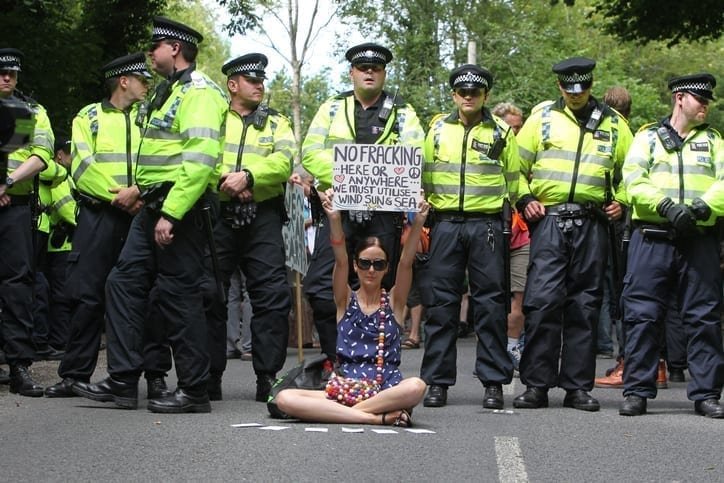CPRE, the countryside charity, has welcomed a report released today today (23 October) from the National Audit Office which shines a critical light on the government’s policy to develop a shale gas industry in England.
The report supports CPRE’s warnings that fracking has no demonstrable benefit to local people, communities and the country at large.
‘The NAO report casts a critical eye over the government’s commitment to developing a shale gas industry in England. For several years now, local communities have been bamboozled by shale salespersons, promising economic boom, lower energy bills, all at no cost to the environment. The NAO report highlights the lack of evidence to support any of these claims, and the lack of clarity on who will meet the costs of decommissioning wells when the fracking circus leaves town.’
DANIEL CAREY-DAWES
Head of Rural Economy and Communities, CPRE
Slow progress for shale gas
Progress in establishing a shale gas industry in England has been slower than government planned, according to today’s report.
The government has committed to developing a shale gas industry in England despite public concern over the environmental and public health risks from fracking. In response, the NAO reviewed the current landscape of hydraulic fracturing (fracking) of shale gas in England.
The Department for Business, Energy and Industrial Strategy does not know how much shale gas can be commercially extracted in the UK. In 2016, Cabinet Office expected up to 20 fracked wells by mid-2020. Three wells have been fracked to date.
The Department has encouraged operators to determine the viability of the industry and introduced measures to support the planning process. Operators have said the system to protect against the risk of earthquakes is stricter than that used internationally and has hindered their ability to develop the industry.
The Department does not expect shale gas production to lead to lower energy prices, but believes it could provide greater energy security and have economic benefits.
However, it has not analysed the benefits or costs of supporting the shale gas industry because it thinks this would not be meaningful due to the current uncertainty about how much shale gas can be extracted.
Falling public support for fracking
Public support for shale gas development is low and has reduced over time. Concern has centred on the risks to the environment and public health from greenhouse gas emissions, groundwater pollution and fracking-induced earthquakes, as well as the adequacy of existing regulations.
Government has told the NAO that it is confident the regulatory regime can manage these risks. Regulators have so far focused on the current exploratory stage and mainly rely on a system of statutory self-reporting by the operator, which presents risks.
Should the industry ramp up to full production quickly, the Environment Agency (EA) says it is confident it can respond at pace.
Carbon capture and storage
The Department believes it can meet its climate change objectives while developing shale gas, but it has not yet developed the necessary technology.
The Committee on Climate Change states that the development of carbon capture, usage and storage technology (CCUS) is critical to reducing greenhouse gas emissions, because it would provide a way to use fossil fuels, including shale gas, in a low-carbon way.
 Play Video about This Rock Might Just Save The World
Play Video about This Rock Might Just Save The World Play Video about Play 2 hours of rock
Play Video about Play 2 hours of rock Play Video about Play 2 hours of brook
Play Video about Play 2 hours of brook Play Video about Play 2 hours of sheep
Play Video about Play 2 hours of sheep











































